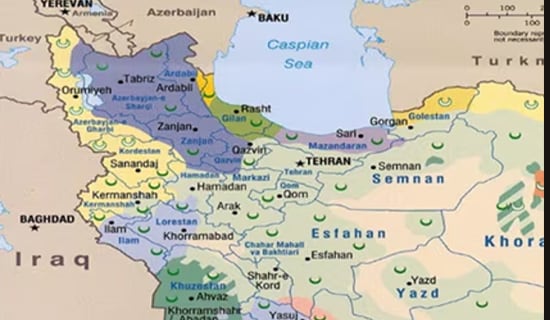In an article he published on October 23, 2019, Muhammad Hussein Al-Momani, board director of Jordan's Al-Ghad daily and Jordan's former government spokesman and state minister for media affairs, slammed the U.S. for its decision to withdraw its forces from northeastern Syria. Al-Momani warned that this "hasty, miscalculated and uncoordinated" step would harm America's interests in Syria as well as the interests of its allies. Those who benefit from it the most, he added, are Russia, since the withdrawal reinforces its status as the major decision-maker in Syria, and Iran, which will be able to expand its regional influence. At the same time, he expressed hope that Russia will help curb Iran's expansion in Syria and the Middle East.
It should be mentioned that the article was published amid ongoing Jordanian concern about the presence of pro-Iranian forces near its border with Syria.[1]
The following are translated excerpts from his column:[2]

Muhammad Hussein Al-Momani (Source: awakaai.com)
"The mutual hostilities in northern Syria go far beyond what Turkey, the U.S. and Russia declare. The events there have placed all the countries in the region in a state of doubt and uncertainty, causing complete chaos and granting Russia and Iran an opportunity to fill the strategic vacuum created by America's hasty, uncalculated and uncoordinated unilateral withdrawal. [U.S.] President Trump disregarded the danger inherent in the strategic vacuum created by the withdrawal, ignoring the interests of [his] allies and of regional stability. [He even disregarded] the stated interests of his own country, which are fighting terror and preventing its reemergence, curbing Iran's influence in Syria, and [also] protecting Syria's state institutions and preventing it from becoming a failed state that is unable to deal with problems within its borders.
"The U.S. withdrawal threatens the region's stability and America's interests. The Kurdish forces that are fighting terror have been stabbed [in the back]. They will no longer have same boldness and ability to fight ISIS in northern Syria, and the [resulting] strategic vacuum will be filled by Iran...
"[But] the one who benefited most from the developments is Russia. [This country] has consolidated its standing as the decision-maker, and [also] as having greater credibility than the U.S., which takes unilateral and uncoordinated decisions that undermine its credibility and confuse its allies. As for Iran, it is [now] in a strategic position that allows it to keep expanding and increasing its influence. This will not necessarily be achieved by sending troops and gear that can be followed, monitored and bombed. Iran's expanding influence takes many forms. It does not [take the form of] overt social, religious or political [influence]. It will not be long before we witness [the emergence of] a Syrian version of Hizbullah, the Houthis and the Popular Mobilization Units.
"Perhaps the only advantage of Russia's presence [in Syria] is that [this presence] is at odds with Iran's goals and ambitions, which Russia does not accept. Russia may be the only one who can counterbalance Iran's influence in Syria and curb it, considering that the Syrian regime is politically and militarily unable to do so.
"The U.S. has handed all of Syria to Russia and Iran on a silver platter. The various regional forces must now deal with the new strategic reality and with the need to coordinate with Russia in order to restrain the Iranian influence and help the Syrian [state] institutions to end terrorism."
[1] Se MEMRI Inquiry & Analysis Series No. 1359, Concern In Jordan Over Pro-Iranian Forces On Border, November 16, 2017; Special Dispatch No. 5980, Former Jordanian Minister: We Must Not Allow Iranian Presence On Our Borders, Even At The Price Of War, March 3, 2015.
[2] Al-Ghad (Jordan), October 23, 2019.








